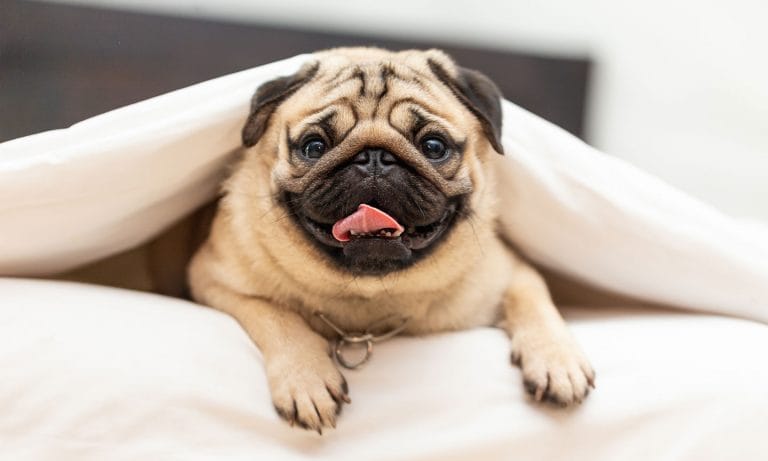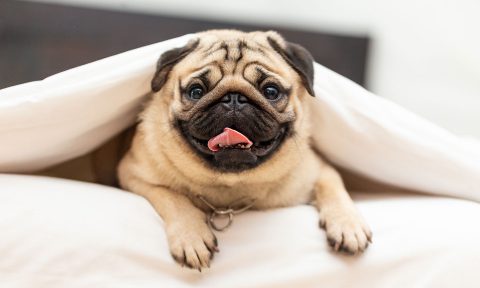Chihuahua vs Pug

Breed Snapshot
Best For
Equal parts affectionate, charming and mischievous, Chihuahuas are small, adaptable dogs who thrive in households (small and large!) with no other dominant pets. This toy breed's ideal pet parent provides companionship, care and lots of...
Equal parts affectionate, charming and mischievous, Chihuahuas are small, adaptable dogs who thrive in households (small and large!) with no other dominant pets. This toy breed's ideal pet parent provides companionship, care and lots of attention.
Chihuahua Temperament
Chihuahuas are charming little scamps with an eye for mischief and a sense of bravery that outsizes their physicality. They’re playful pups who enjoy a good romp or game, even though it may not last long (depending on their energy level). And they love to snooze on laps an...
Chihuahuas are charming little scamps with an eye for mischief and a sense of bravery that outsizes their physicality. They’re playful pups who enjoy a good romp or game, even though it may not last long (depending on their energy level). And they love to snooze on laps and cuddle—that is, after all, what they’re bred to do.
They like a lot of attention and are quite portable. But even though they’re easily carried, they do still need to learn how to walk on their own and be able to engage in normal dog behaviors, like sniffing, exploring and playing. In other words, don’t pop them in a purse or a stroller and tote them everywhere—unless, of course, it’s somewhere risky with lots of feet that could hurt a tiny paw, like an airport or street festival.
The Chihuahua dog breed is said to resemble a terrier with their demeanor and can become quite feisty, especially if they feel threatened. Some sites report that the Chihuahua bite force is 3,900 pounds per square inch (psi), but those so-called Chihuahua facts are wildly inaccurate, when a lion is only at 600 psi. In truth, Chihuahuas usually inflict no more than a Level 1-3 bite, with no puncture deeper than half the length of one of their canine teeth.
To help your Chihuahua puppy overcome a nipping or protective tendency, socialize them by safely and slowly introducing them to new people and places from the get-go and start training when they are young. Early training will also help this smallest of dog breeds become wonderfully friendly and receptive to all members of the family, including other pets.
Chihuahua Traits

Breed Snapshot
Best For
Pugs are quirky, affectionate companions. Their coat may be low-maintenance, but their personality is decidedly not—they crave attention, making them perfect for cuddlers seeking a lively, adaptable friend.
Pug Temperament
Simply put, Pugs are incredibly friendly dogs. They thrive on attention and can get pretty worked up and excited if fun things are happening. These are amiable little dogs who want to participate in your activities, too. Pugs prefer friends over foes, and they’re not prone to bite (the...
Simply put, Pugs are incredibly friendly dogs. They thrive on attention and can get pretty worked up and excited if fun things are happening. These are amiable little dogs who want to participate in your activities, too. Pugs prefer friends over foes, and they’re not prone to bite (their jaw shape minimizes the effectiveness of their bite).
Pugs with kids and babies are often a great combination since Pugs are fun and enjoy playtime. However, the Pug’s eyes are at risk for injury (since they slightly stick out), so children need to learn early on that their pet’s face is vulnerable, and they must take care while playing with the dog.
A Pug’s personality is playful and charming but in a somewhat regal and controlled manner. They’re enjoyable dogs to be around, and hopefully, you don’t mind the occasional snore.
Finally, when it comes to a career, Pugs may have the best job in the world: being a companion to their loving family. They are average barkers (not too quiet, not too much) and make fairly good watchdogs, too.




